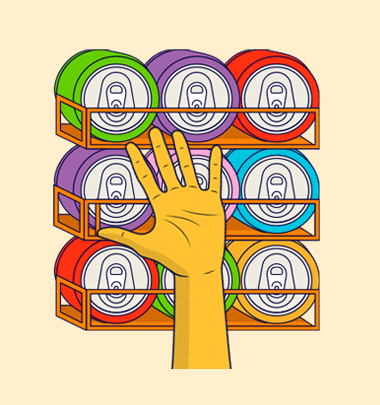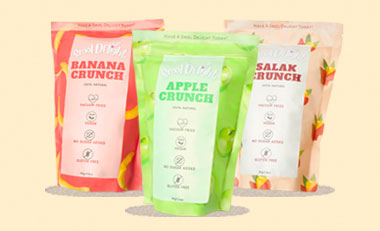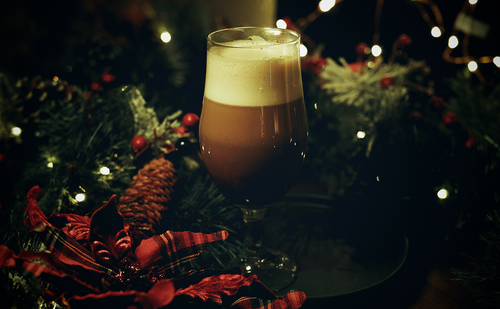Red packets, oranges, and… alcohol?!
When we think of Chinese New Year, we think of the bright red decorations, the heartwarming reunion dinners, the chaotic lo hei - or yusheng. Beer would probably be the last thing on your mind, but did you know that alcohol has had a long and important history in China?
In fact, a study by McGovern et. al. revealed that the earliest chemically confirmed alcoholic beverage in the world was discovered at Jiahu in the Yellow River Valley of China, approximately 7000-6600 B.C. Back then, people used the fermented beverage in their burial and religious ceremonies.
In Chinese, “酒” (alcohol; jiǔ) is a homophone of “久” (long-lasting; jiǔ). As such, people will drink to everlasting friendships, happiness and other wishes during festivals.
Significance of wine

Image credit: @flickerye
Wine was often used in traditional Chinese medicine and was dubbed 百药之长 - the leader of all medicine. Fast forward to today, alcohol is mostly used for socialising, be it for a symbolic ritual at an event, to honour your ancestors or gods, or simply to “chill drinks” with friends.
In Chinese culture, baijiu - Chinese white wine - is the most common alcohol. Baijiu is traditionally made from fermented sorghum, a nutrient-rich cereal grain. Despite being wine, baijiu is actually more similar to vodka. The wine is rather strong and you take it in shots!
The history of beer in Chinese culture

Image credit: Z Juzhong
In a study by Wang et. al., the first evidence of beer in China dated back to 9,000 years ago in southern China, where the beer-verage was likely used as part of a ritual to honour the dead. Of course, one cannot expect that the beer from 9,000 years ago in China would taste like the IPAs we have today, but beer is still beer. We don’t discriminate!
Unfortunately, in China, beer was pretty much secondary to jiu, that is, until the 20th century. It actually took foreign intervention to resurrect beer; in 1900, a Polish-Russian immigrant established China’s first European-style brewery in Harbin.
The beer industry then truly kicked off in the 1980s, where production increased almost fivefold to surpass 3 billion litres. By 1990, beer became China’s most popular alcoholic beverage.
The independent brewing scene in China

Image credit: Bionic Brew
China’s craft beer scene was revitalised by foreign beer enthusiasts who sought to reform China’s bleak beerscape into a familiar and thriving place that they could call home. During the 2010s, Beijing became the nurturing mother of China’s budding beer scene. Breweries began popping up everywhere, and so did brewpubs.
Inspired by the burgeoning beer scene, locals began taking matters into their own hands. With some help from Gao Yan, a brewer from Nanjing who published the first homebrewing manual in Chinese, locals started to create their own fresh brews.

Image credit: @yu271po8
In 2012, Jacob Wickham established the Beijing HomeBrewing Society, and several members struck out on their own ventures. As a result, there are currently a bunch of brewers’ associations across the country, but most of them do not sell their products commercially. Do these brewers count as craft then? Probably not, but hey, at least the beer scene in China is thriving!
The “Chinese” craft style - does it exist?
If we’re talking about aesthetics and taste, then no, there isn’t an explicitly “Chinese” craft beer style; but if we’re talking ethos, then perhaps. According to Ammerman, the willingness to experiment and try interesting flavour combinations is very characteristic of Chinese brewers. Perhaps it’s the lack of legacy craft beers in China that allowed for such freedom to be creative and to tread beyond existing boundaries.

Image credit: @oriento
Many breweries in China use locally sourced ingredients in their brews, and as expected, tea is a fairly popular ingredient in Chinese craft beers. These Chinese beer-verages don’t taste that much different from American beers though. As established, what sets them apart is the energy and collective spirit the brewers bring to their customers.
Sure, craft beer is about the beer; but more importantly, craft beer is a culture. It brings people together to celebrate, share, and enjoy the craft.






















